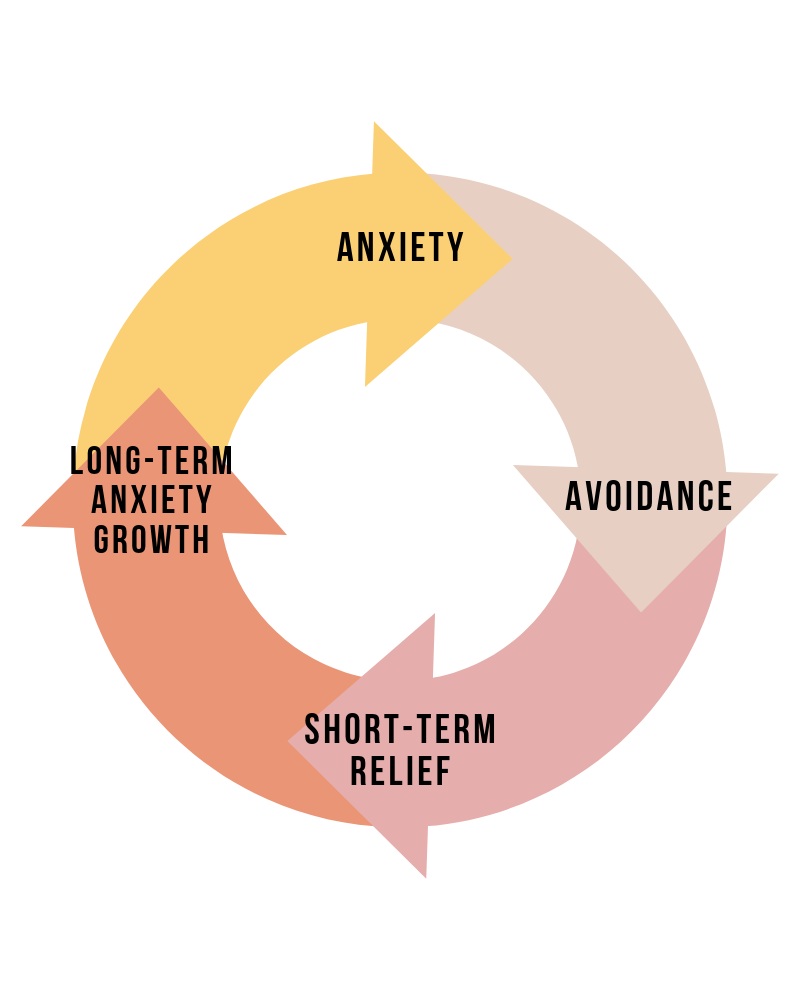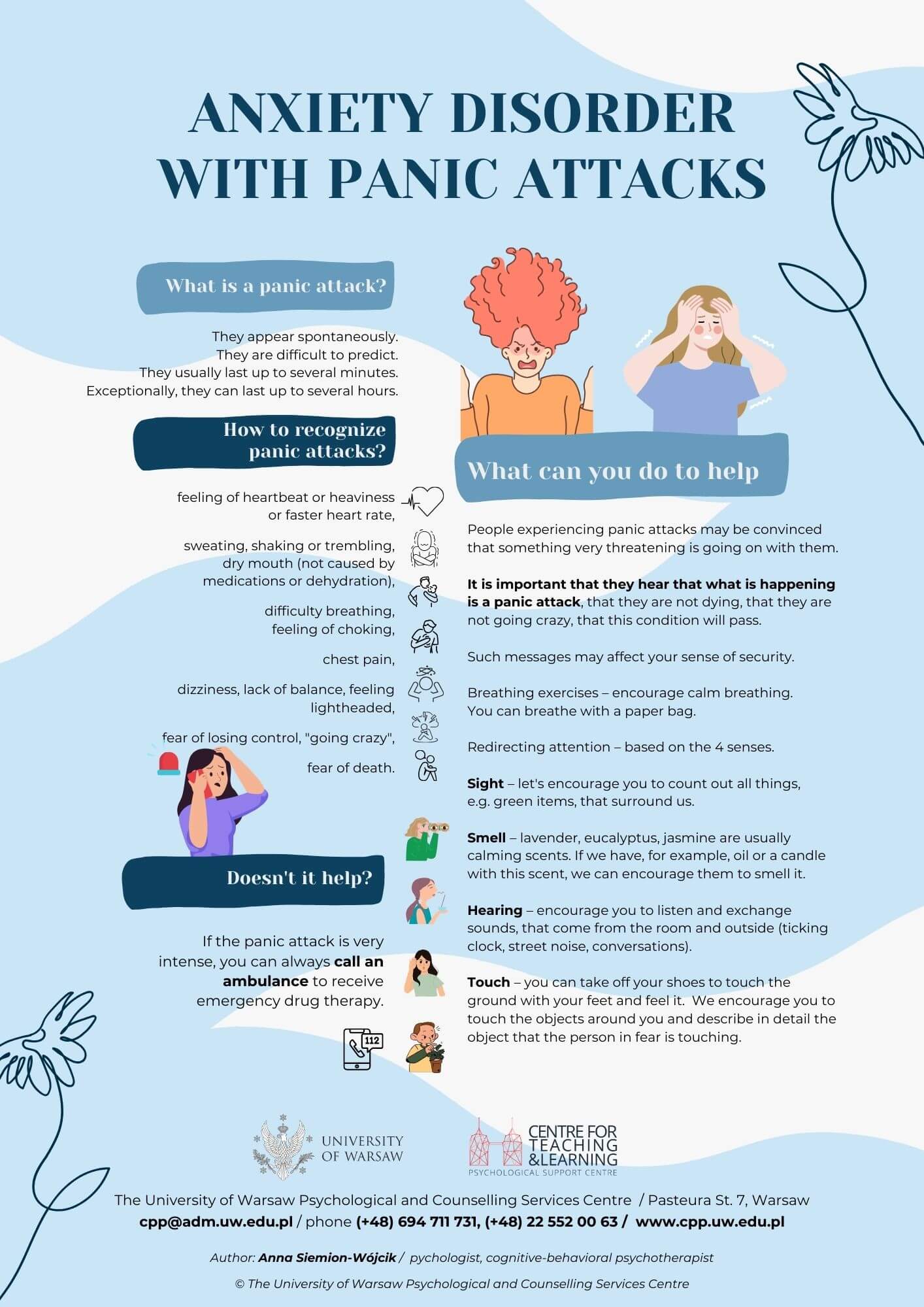Efficient Techniques in Counselling for Anxiousness Condition: A Path to Recuperation
When dealing with anxiousness conditions, you may really feel overloaded and unclear of where to transform. Reliable coaching approaches can pave the way for recuperation, giving you with the tools to navigate your obstacles. From cognitive-behavioral strategies to mindfulness methods, each approach offers distinct advantages. Recognizing just how these strategies interact can make a considerable difference in your trip. What are the vital elements that will guide you in the direction of lasting adjustment?
Understanding Stress And Anxiety Disorders: An Extensive Introduction
When you consider anxiety disorders, it's vital to identify that they encompass a variety of conditions defined by extreme anxiety or concern. These conditions can show up in numerous methods, including generalised stress and anxiety disorder, panic attack, and social stress and anxiety condition. You may experience symptoms like rapid heart beat, sweating, or difficulty focusing. It's usual to really feel overloaded, and these sensations can disrupt day-to-day life.Understanding the root creates of anxiousness is essential. They can stem from genes, brain chemistry, or environmental variables. You might find that specific situations trigger your anxiousness, making it crucial to determine these triggers.
Cognitive Behavioral Treatment (CBT): Improving Idea Patterns

Mindfulness and Relaxation Techniques: Growing Present-Moment Understanding
Mindfulness and leisure strategies help you cultivate present-moment recognition, allowing you to manage anxiety better. By concentrating on the present moment, you can damage without the cycle of fear and rumination that usually gas stress and anxiety. Start by practicing deep breathing exercises. Breathe in gradually through your nose, hold for a minute, after that breathe out through your mouth. This straightforward strategy can relax your mind and body.Engage in mindfulness meditation by reserving a couple of minutes every day to observe your ideas without judgment. Take note of your breath, feelings, and the noises around you. You could additionally locate value in dynamic muscle mass leisure, where you strained and relax each muscular tissue team, advertising mental and physical ease.Incorporating these methods right into your day-to-day routine can create a better feeling of control, minimize anxiety signs and symptoms, and improve your total health. Bear in mind, consistency is crucial to experiencing the advantages.
Direct Exposure Therapy: Facing Concerns Gradually
Direct exposure therapy helps you face your worries slowly, allowing you to develop self-confidence gradually. By utilizing gradual direct exposure methods, you can slowly confront what makes you anxious while creating effective coping mechanisms. This process not only reduces your worry however also encourages you to handle anxiousness better.
Steady Direct Exposure Strategies
You can effectively minimize stress and anxiety and reclaim control over your life when you challenge your concerns slowly. Progressive direct exposure strategies include facing your worries tip by step, beginning with much less frightening scenarios. You might start by picturing the been afraid scenario, then proceed to watching images or videos connected to it. Ultimately, you can exercise challenging the anxiety in reality, yet only when you feel ready. This approach allows you to construct confidence as you relocate through each stage. Bear in mind to speed on your own; rushing can increase stress and anxiety. Commemorate little success along the road, as each advance empowers you. By continually using these techniques, you'll discover that your fears begin to lose their hold on your mind.
Structure Coping Devices
Structure efficient coping systems is essential for handling anxiousness, specifically as you face your anxieties progressively via exposure treatment. Start by determining your details worries and breaking them down right into manageable actions. By doing this, you can slowly face each concern without ending up being overwhelmed. If you battle with social circumstances, beginning by practicing little interactions, like greeting a neighbor.Alongside steady direct exposure, integrate relaxation methods such as deep breathing or mindfulness to calm your mind before facing triggers. Maintain a journal to track your progress and commemorate small success. Surround yourself with helpful friends or a therapist who can lead you. Bear in mind, it's a journey-- persistence and persistence will certainly enhance your coping mechanisms, causing better resilience versus stress and anxiety.
Supportive Counseling: Structure Trust Fund and Relationship
To effectively support somebody with stress and anxiety, developing count on and rapport is crucial from the very initial session. You'll wish to create a risk-free space where they really feel comfy sharing their thoughts and feelings without judgment. Energetic listening is crucial; show real rate of interest in what they share. Recognize their sensations and verify their experiences. It's vital to be empathetic, as this helps construct a connection and encourages openness.Be constant in your method and maintain discretion to more reinforce that count on. Use open body movement and make eye get in touch with to communicate your attentiveness. Remember, your persistence goes a long way; building relationship requires time, and it's essential to respect their pace. By fostering this encouraging atmosphere, you'll equip them to engage even more totally in the restorative process, making it much easier for them to discover their anxiety and pursue recovery.
Team Therapy: Shared Experiences and Cumulative Recovery
Group therapy can be an effective tool for those managing anxiety conditions, as it allows individuals to share their experiences and find relief in the understanding of others. In this encouraging setting, you can express your sensations without fear of judgment. Listening to others' stories can stabilize your very own experiences, making you feel much less alone in your struggle.Participating in group therapy assists you develop dealing techniques through shared knowledge and insights. As you listen to others, you may discover brand-new means to tackle your anxiousness that you had not thought about before.Moreover, the collective healing that occurs in these sessions can promote a sense of area, reminding you that you're not facing your challenges alone.Building connections with others who recognize your battle can boost your self-confidence and motivation to challenge your stress and anxiety. Team therapy produces a space where development and recovery become a common journey, equipping you to take steps toward recovery.
Integrating Lifestyle Adjustments: All Natural Methods to Stress And Anxiety Monitoring
While treatment supplies vital support, integrating way of living modifications can greatly enhance your capacity to handle anxiety. Begin by incorporating routine physical activity right into your routine. Workout launches endorphins, which can raise your mood and reduce anxiety. Next, pay attention to your diet. Taking in a well balanced diet rich in fruits, vegetables, and entire grains can positively impact your mental wellness. Don't ignore sleep-- go for 7-9 hours per evening, as quality rest is vital for psychological regulation.Mindfulness techniques, such as reflection or yoga exercise, can additionally assist you stay grounded and present. Take into consideration reserving time daily to exercise these methods. Finally, limitation caffeine and alcohol consumption, as they can exacerbate anxiousness signs. By making these holistic changes, you produce a stronger foundation for handling stress and anxiety, matching the benefits acquired from treatment. Remember, every little step matters on your path to recuperation.
Frequently Asked Concerns
What Are the Typical Physical Signs And Symptoms of Anxiousness Disorders?
Typical physical signs of anxiousness disorders include quick heart rate, lack of breath, muscle tension, sweating, and migraines. You may likewise experience fatigue, lightheadedness, or stomach concerns, which can better complicate your day-to-day live.
How Much Time Does Therapy for Anxiety Normally Take?

Counseling for stress and anxiety normally takes a couple of weeks to several months, depending on your individual demands and progression. counselling for anxiety. You'll locate that regular sessions assist you establish coping strategies and acquire understandings into your anxiousness
Can Stress And Anxiety Problems Be Entirely Treated?

What Should I Carry out in an Anxiety attack?
During a panic attack, concentrate on your breathing. Inhale deeply via your nose, hold for a minute, then breathe out slowly - counselling for anxiety. Ground yourself by calling items around you, and advise on your own it will pass
Exist Medications for Anxiousness Problems?
Yes, there are numerous medications for anxiety conditions, consisting of benzodiazepines and antidepressants. You ought to get in touch with a health care expert to locate the right treatment strategy customized to your certain demands and situations for the very best results. When you think regarding anxiousness problems, it's important to acknowledge that they incorporate a variety of conditions defined by extreme anxiety or fear. These disorders can manifest in numerous ways, including generalized stress and get more info anxiety problem, panic problem, and social anxiousness problem. Building effective coping mechanisms is important for managing anxiety, particularly as you face your concerns progressively through direct exposure therapy. Team treatment can be a powerful tool for those dealing with stress and anxiety conditions, as it permits people to share their experiences and discover relief in the understanding of others. As you listen to others, you may discover new methods to tackle your stress and anxiety that you had not taken into consideration before.Moreover, the cumulative recovery that takes place in these sessions can promote a feeling of area, reminding you that you're not encountering your difficulties alone.Building connections with others that comprehend your battle can improve your self-confidence and inspiration to challenge your stress and anxiety.